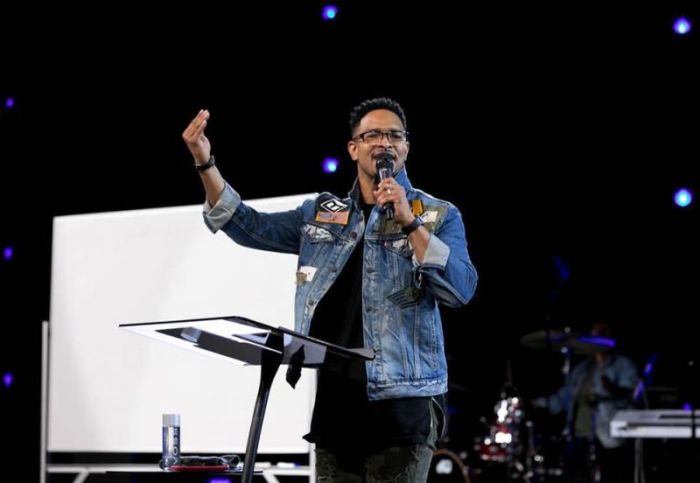Pastors Aren't Substitutes for Therapists, Suicide Survivor Apostle Bryan Meadows Says

In the wake of the high-profile suicides of CNN host Anthony Bourdain and iconic fashion designer Kate Spade last week, suicide survivor Apostle Bryan Meadows, who leads Embassy Church International in Atlanta, has warned his followers to take care of their mental health and that pastors should not be treated like therapists.
"Creatives need PASTORS and THERAPISTS!!! Your Pastor is NOT your therapist, and your therapist is NOT your Pastor. While everyone should utilize these resources in their life, for the CREATIVE it's absolutely necessary," Meadows wrote on Friday after Bourdain's death was made public. "When your life is spent processing intense stimuli, emotions and experiences, you have to address emotional and psychological constipation. When you are constantly living to make others happy and inspired, you need to understand how that takes a toll of your emotional and mental health."
Meadows' comments also come on the heels of a report from the Centers for Disease Control and Prevention last week showing that suicide rates have gone up by 30 percent across the nation since 1999. Suicide rates, the federal agency said, have been rising in nearly every state.
On Saturday, he also shared a blog entry from 2012 which reveals a family struggle with mental health as well as his history as a suicide survivor.
"Suicide is a sensitive subject. And whether we admit it or not, the best of us have been confronted with suicidal thoughts. This subject is extremely important and dear to me because I am a suicide survivor. This is not something that I speak about often, but something that occurred recently prompted me to speak on this," he explained in the post.
"My family has a history of depression and bipolar disorder. One thing that I have learned about generational curses, weakness and familiar spirits is that they are very patient. They will wait 30 years for you to be weak enough for them to take advantage of your vulnerability. They will wait you out until the perfect moment," he said.
After discussing his struggles with suicide, Meadows pointed to biblical characters like Samson (Judges 16:30), Saul's armor bearer (1 Samuel 31:5) and Judas (Matthew 27: 3-5, who committed suicide and others like Elijah (1 Kings 19:4), who had suicidal thoughts.
He also called suicide a spirit.
"I want to be clear that suicide is a spirit. It is an influencing agent that troubles the mind with depression, paranoia and deception to the point of self destruction. Depression is a soulish weight that enters in by a distorted view of one's own self-worth. Low self-esteem and not understanding ones assignment is the catalyst and beginning of depression. Depression is NOT curable by drugs. While it can be treated by psychologist and helped by counseling and support groups, we cannot dismiss the technology of intercession and deliverance," he wrote.
Meadows recommended several Bible-based actions to combat suicide, including living life on purpose.
"We speak a lot about purpose, and to some degree it has become a mundane subject that we overlook. Some have even criticized people for teaching and preaching on the subject of purpose. I believe that the gospel cannot be preached in its totality without including the purpose of people. We must teach people that everyone is here for a reason, and that no one is insignificant," he explained.
A report in The Christian Post in March, pointed to an alarming number of pastors who had taken their own lives in the last five years. And despite the increasing prevalence of suicide nationally, and the troubling rates at which the epidemic affects certain groups of clergy, many churches remained silent on the issue.
In 2016, according to the CDC, nearly 45,000 Americans age 10 or older died by suicide, making it the 10th leading cause of death and one of just three leading causes of death that are on the rise.
"Suicide is a leading cause of death for Americans — and it's a tragedy for families and communities across the country," CDC Principal Deputy Director Anne Schuchat said. "From individuals and communities to employers and healthcare professionals, everyone can play a role in efforts to help save lives and reverse this troubling rise in suicide."
Researchers found that more than half of people who died by suicide did not have a known diagnosed mental health condition at the time of death. Relationship problems or loss; substance misuse; physical health problems; and job, money, legal or housing stress often contributed to risk for suicide. Firearms were the most common method of suicide used by those with and without a known diagnosed mental health condition.




























